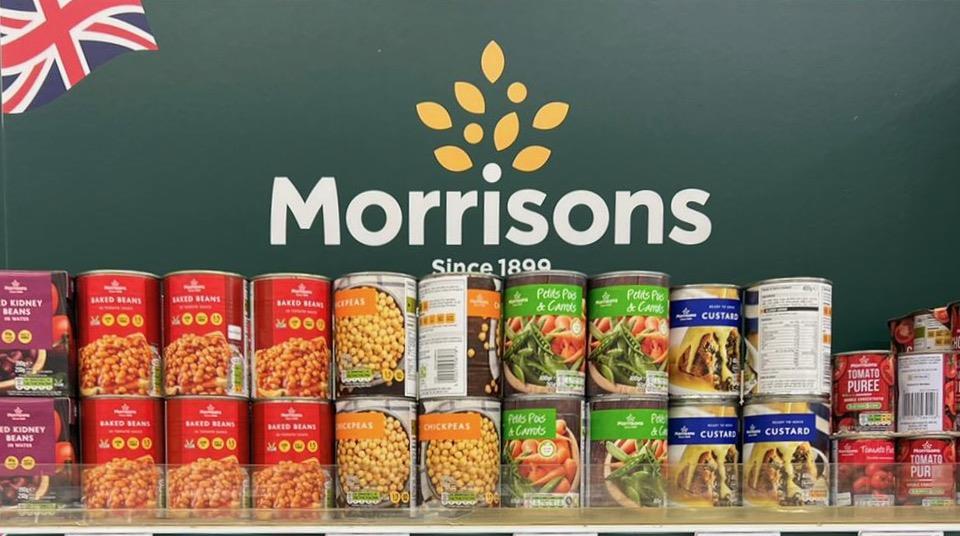Introduction
When you think about grocery shopping, it’s easy to get caught up in the routine—grab a cart, stroll the aisles, and fill up on essentials. However, for millions of shoppers in the southeastern and mid-Atlantic United States, this routine takes on a unique charm when done at Food Lion. Here’s an interesting fact: Food Lion, established in 1957, started with just one store in Salisbury, North Carolina, and has since grown into a network of over 1,000 stores. This journey from a single neighborhood market to a major player in the grocery industry showcases a story of ambition, community, and consistent quality that has resonated with customers for decades.
Food Lion is more than just a grocery store chain; it’s a part of the daily lives of countless families. Originally named Food Town, the brand rebranded to Food Lion in 1983 to facilitate its expansion beyond its North Carolina roots. Today, it operates as a subsidiary of the international conglomerate Ahold Delhaize, known for its commitment to providing affordable groceries without compromising on quality. The stores are strategically located to serve both urban and rural communities, offering a wide range of products, from fresh produce and meats to household essentials and specialty items. Food Lion’s mission is simple yet impactful: to ensure customers can count on fresh, affordable food every day.
This blog aims to delve deep into what makes Food Lion a standout in the crowded grocery landscape. Whether you’re a long-time shopper curious about the company’s inner workings or a newcomer looking to understand what sets Food Lion apart, this comprehensive guide will cover it all. From its historical roots and market position to its customer-centric services and community involvement, understanding Food Lion’s business model and operational strategies can offer valuable insights. Additionally, recognizing the company’s efforts in sustainability and local community engagement highlights why Food Lion is not just a place to shop but a cornerstone of the communities it serves. So, why should you care about Food Lion? Because it exemplifies how a business can grow by staying true to its core values and continuously adapting to meet the needs of its customers.
History of Food Lion
Early Beginnings
Food Lion was founded in 1957 by Ralph Ketner, Brown Ketner, and Wilson Smith in Salisbury, North Carolina. The original store, then named Food Town, had a clear vision and mission: to provide high-quality food at affordable prices while maintaining excellent customer service. The founders’ focus on cost-cutting innovations and a no-frills shopping experience allowed Food Town to offer competitive prices, quickly attracting a loyal customer base. The company’s initial growth was driven by this simple yet effective formula, laying the groundwork for future expansion.
Growth and Expansion
Throughout the 1970s and 1980s, Food Town experienced significant growth, opening new stores across North Carolina and eventually extending into neighboring states. One of the key milestones in the company’s history was its acquisition by the Belgian grocery company Delhaize Group in 1974. This partnership provided the necessary capital and strategic support for further expansion. Major acquisitions, such as the purchase of the Reid’s grocery chain, helped to consolidate Food Lion’s market position in the southeastern United States. By the mid-1980s, the company had rebranded as Food Lion to facilitate its expansion beyond its original geographic area.
Rebranding and Modernization
The rebranding to Food Lion in 1983 marked a significant turning point for the company. The new name and logo were designed to be easily recognizable and memorable as the company continued to grow. Over the years, Food Lion has introduced various store formats and concepts to meet the changing needs of its customers. This includes the introduction of the Food Lion To-Go service, which offers online shopping and home delivery, and the remodeling of stores to create a more modern and customer-friendly shopping environment. These efforts have helped to keep the brand relevant and competitive in a rapidly evolving retail landscape.
Food Lion’s Market Position
Current Standing in the Market
Today, Food Lion holds a strong position in the grocery market, particularly in the southeastern and mid-Atlantic regions of the United States. The company boasts a significant market share and is often ranked among the top grocery chains in these areas. Food Lion’s competitive pricing, combined with a commitment to quality and customer service, has helped it to maintain a loyal customer base. When compared to major competitors like Walmart and Kroger, Food Lion distinguishes itself with its community-focused approach and local market knowledge.
Geographical Footprint
Food Lion operates over 1,000 stores across 10 states, including North Carolina, South Carolina, Virginia, and Maryland. This extensive geographical footprint allows the company to serve a diverse range of communities, from urban centers to rural towns. Food Lion’s distribution network includes several large distribution centers strategically located to ensure efficient supply chain management and timely delivery of products to all stores.
Target Demographics
The core customer base of Food Lion includes a broad demographic, encompassing families, single households, and elderly customers. Food Lion employs various strategies to attract and retain customers, such as offering competitive prices, a wide range of products, and excellent customer service. The company also engages in targeted marketing campaigns and loyalty programs to enhance customer retention and satisfaction.
Products and Services
Product Range
Food Lion offers a comprehensive range of products to meet the needs of its diverse customer base. This includes grocery items, fresh produce, meat, dairy, and household essentials. The stores also feature a variety of private label brands that provide high-quality alternatives to national brands at lower prices. These private labels are carefully curated to ensure they meet Food Lion’s standards for quality and value.
Unique Selling Propositions
One of Food Lion’s unique selling propositions is its selection of specialty items and exclusive products. The company has developed health and wellness product lines to cater to the growing demand for organic, gluten-free, and non-GMO options. Additionally, Food Lion emphasizes locally sourced products, supporting local farmers and producers while providing customers with fresh and regionally distinct offerings.
In-Store Services
Food Lion is committed to enhancing the shopping experience through various in-store services. This includes customer service initiatives such as self-checkout stations, knowledgeable staff, and convenient store layouts. Additional services like pharmacies, floral departments, and bakeries provide one-stop shopping convenience for customers. The Food Lion To-Go service further extends this convenience by offering online shopping and home delivery options.
Business Model and Operations
Supply Chain Management
Food Lion’s supply chain management is designed to ensure the efficient sourcing, procurement, and distribution of products. The company partners with a network of trusted suppliers to maintain a steady flow of goods to its stores. Advanced logistics and distribution centers play a crucial role in minimizing stockouts and ensuring that stores are well-stocked with fresh products.
Sustainability Initiatives
Environmental sustainability is a key component of Food Lion’s operations. The company has implemented various programs to reduce its carbon footprint, minimize waste, and promote eco-friendly practices. This includes energy-efficient store designs, recycling initiatives, and efforts to reduce food waste through partnerships with local food banks and charities.
Technology Integration
Food Lion leverages technology to streamline operations and enhance customer service. This includes sophisticated inventory management systems, digital marketing tools, and customer feedback platforms. The introduction of online shopping and delivery services through Food Lion To-Go demonstrates the company’s commitment to meeting the evolving needs of its customers in the digital age.
Community Engagement
Corporate Social Responsibility (CSR)
Food Lion is dedicated to corporate social responsibility, with numerous programs aimed at supporting the communities it serves. This includes initiatives focused on hunger relief, such as the Food Lion Feeds program, which has provided millions of meals to families in need. The company also engages in charitable activities and partnerships with local organizations to make a positive impact.
Local Community Initiatives
In addition to its broader CSR efforts, Food Lion places a strong emphasis on supporting local communities. This includes partnerships with local farmers and suppliers to promote regional economic growth. Food Lion stores frequently participate in community events and sponsor local sports teams, fostering a strong connection with the neighborhoods they serve.
Customer Experience
Store Layout and Design
Food Lion continuously innovates its store layouts to enhance the shopping experience. Stores are designed to be easy to navigate, with clear signage and organized aisles that make it simple for customers to find what they need. Recent renovations have focused on creating a more modern and welcoming atmosphere, including improved lighting and decor.
Customer Service Approach
Customer service is a cornerstone of Food Lion’s operations. The company invests in comprehensive training programs for its staff to ensure they can provide knowledgeable and friendly assistance. Feedback systems are in place to gather customer opinions and make necessary improvements, demonstrating Food Lion’s commitment to customer satisfaction.
Loyalty Programs
Food Lion’s loyalty program, MVP, offers various benefits and rewards to frequent shoppers. Customers can earn discounts, access special promotions, and receive personalized offers based on their shopping habits. The loyalty program is a key tool in retaining customers and building long-term relationships.
Financial Performance
Recent Financial Reports
Food Lion’s financial performance has shown consistent growth in recent years. Key financial metrics such as revenue, profit margins, and same-store sales growth indicate a healthy and thriving business. An analysis of recent fiscal year performance highlights the company’s ability to adapt to market changes and maintain profitability.
Revenue Streams
The company’s revenue streams are diverse, encompassing various product categories and services. Fresh produce, grocery items, and private label brands are significant contributors to overall revenue. The impact of different product categories on revenue underscores Food Lion’s balanced approach to inventory management and sales strategy.
Investment and Growth Plans
Food Lion has ambitious plans for future growth, including opening new stores and upgrading existing ones. The company continues to invest in infrastructure and technology to support its expansion and enhance operational efficiency. These investments are aimed at maintaining Food Lion’s competitive edge and ensuring long-term success.
Challenges and Opportunities
Current Challenges
Despite its success, Food Lion faces several challenges, including intense competition from other major grocery chains and economic factors that can impact consumer spending. Staying ahead of market trends and meeting the evolving needs of customers are ongoing challenges that require strategic planning and innovation.
Strategic Opportunities
Emerging trends in the grocery industry present numerous opportunities for Food Lion. This includes the growing demand for online shopping, health and wellness products, and locally sourced goods. By capitalizing on these trends and exploring new market segments, Food Lion can continue to grow and thrive in a competitive landscape.




